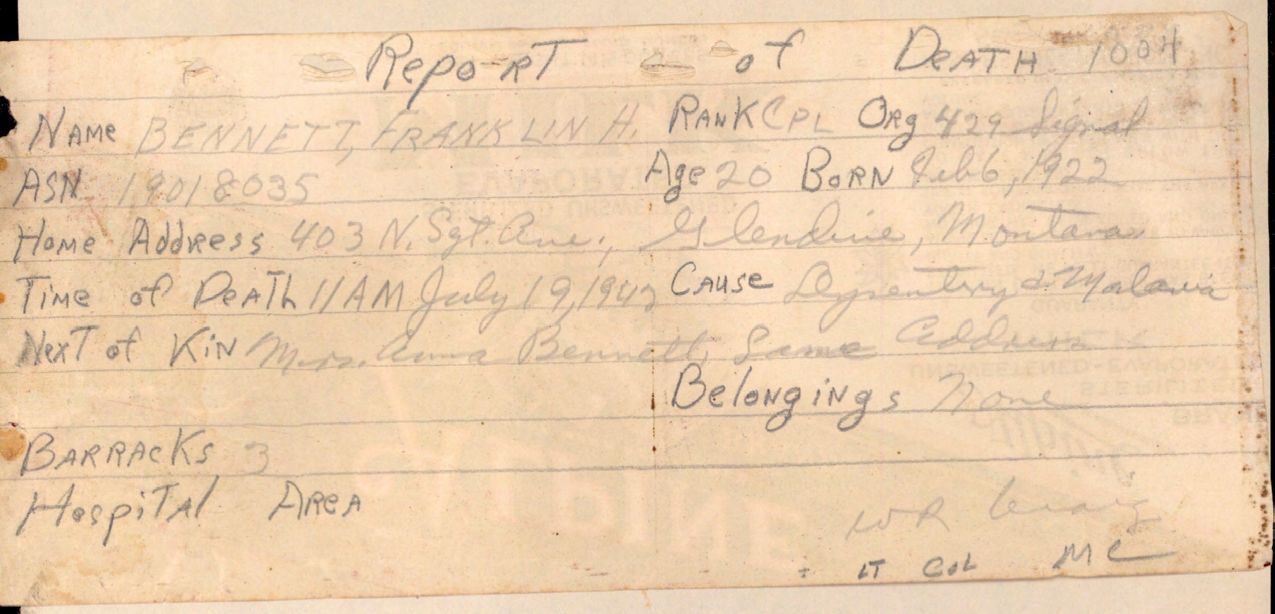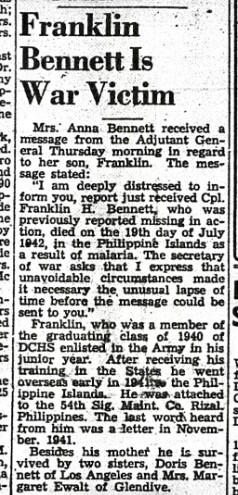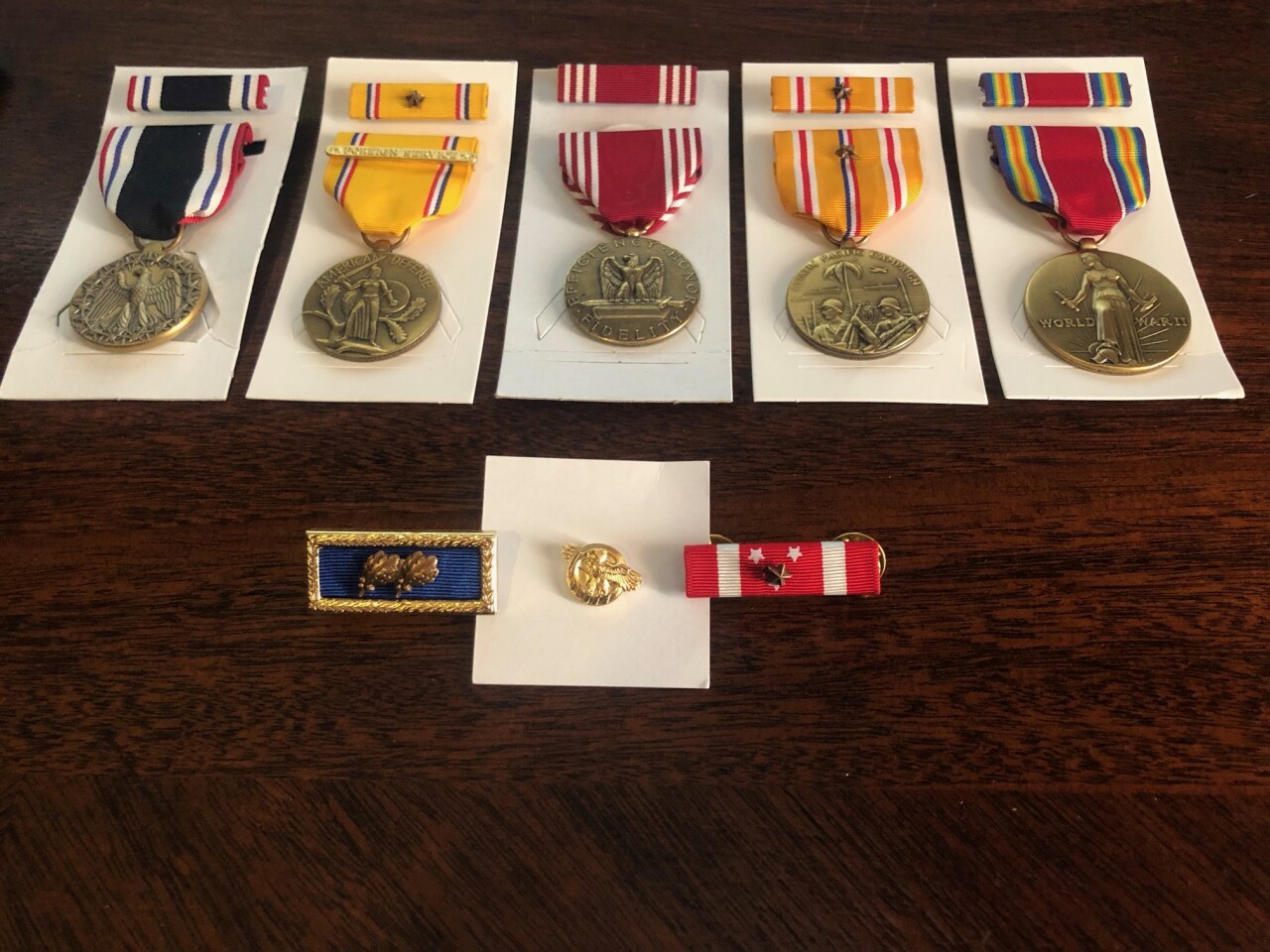BILLINGS — Linda Raney was shocked to receive a phone call from the Department of Defense asking for a DNA sample, but she complied.
And now, her world has been turned upside down.
Raney lives in Florida but recently found out about her family’s ties to Montana. Her long-lost uncle, Franklin Bennett, was the reason behind the phone call.
Bennett served as a Corporal in the U.S. Army during World War II. He left his hometown of Glendive in 1941 to fight overseas but never returned home.

DPAA
Now, more than 80 years later, he is returning to the United States.
“Actually several years ago, they had begun the search and had traced back the family history. And I appeared to be the only living relative,” Raney said on Wednesday. “It was my uncle on my maternal side, which I was estranged from at a young age. I didn’t know my mother, so the process itself was kind of a dual thing. I got to learn a little bit about my family history.”
But Raney had no idea what was about to be uncovered.
“In that particular gravesite, there was no match. That was a couple of years ago,” Raney said. “Just recently they had uncovered the other gravesite. And it turned out that the DNA I had submitted was a 250% match.”
Bennett’s remains were discovered in a mass grave at a former prisoner-of-war camp in the Philippines. He was captured by the Japanese along with thousands of others and sent on the historic Bataan Death March. He survived and was taken to the POW camp, where he eventually died in 1942.
“To realize that he marched for 64 miles to the prisoner of war camp, and that’s where he died. Had he not been well enough or able enough, he would have died just on the journey. And that’s a lot of information,” Raney said. “And now I’m in my senior years, so I of course couldn’t pass that along to my family because I didn’t know that. And now it’s stirred up in my children. And now they’re looking into their genealogy.”
Bennett’s family was informed of his death, but his remains were never recovered. Until recently—and Raney’s DNA proved the match.

DPAA
“There were just a few fragmented remains. Through the archiving process and DNA process, it turned out they were able to say this is a definite identification and allowed for the process of bringing him home and laying him to rest,” Raney said. “So right now we’re in the final stages of bringing everything together. They assigned me as a person of record to coordinate that and make my request. He’ll be buried here in Pensacola at Barrancas with full military honors.”
Although no pictures of Bennett have been found, Raney now has something else to remember him by.
“They actually came to my home, two of the officers, (and) brought with them his medals of honor,” Raney said. “The Purple Heart, the Bronze Medal, the Mission of Valor. I mean there was a huge collection.”

The Raney family
And with this discovery, Raney has learned a lot about her family history.
“Through the archiving and the research process, I learned the age of my mother when she passed away. So many things have been brought to light as a result of this, because of somebody else’s effort. It’s been kind of an exciting experience,” Raney said. “It’s just really filled in a puzzle piece that I didn’t know was missing.”
And Raney is proud of what has been discovered.
“I kind of didn’t know what to expect, so just the presentation I got kind of teary-eyed. It was kind of an emotion from somewhere. It makes me very proud to know that our country is going to this effort for something that happened back in the 1940s,” Raney said. “It’s a completion of the journey, no man left behind, he’ll be put to rest. He’s been honored.”
To learn more about the discovery, please click here.
“It’s a meaningful experience. It’s kind of like, ‘You want to hear about my vacation?’ but, ‘Hey, you wanna hear about my uncle that served in WWII?’” Raney said. “Right now it’s new information so I’m enjoying that people are interested.”
Related: Wyoming man’s remains identified more than 80 years after death at Pearl Harbor












